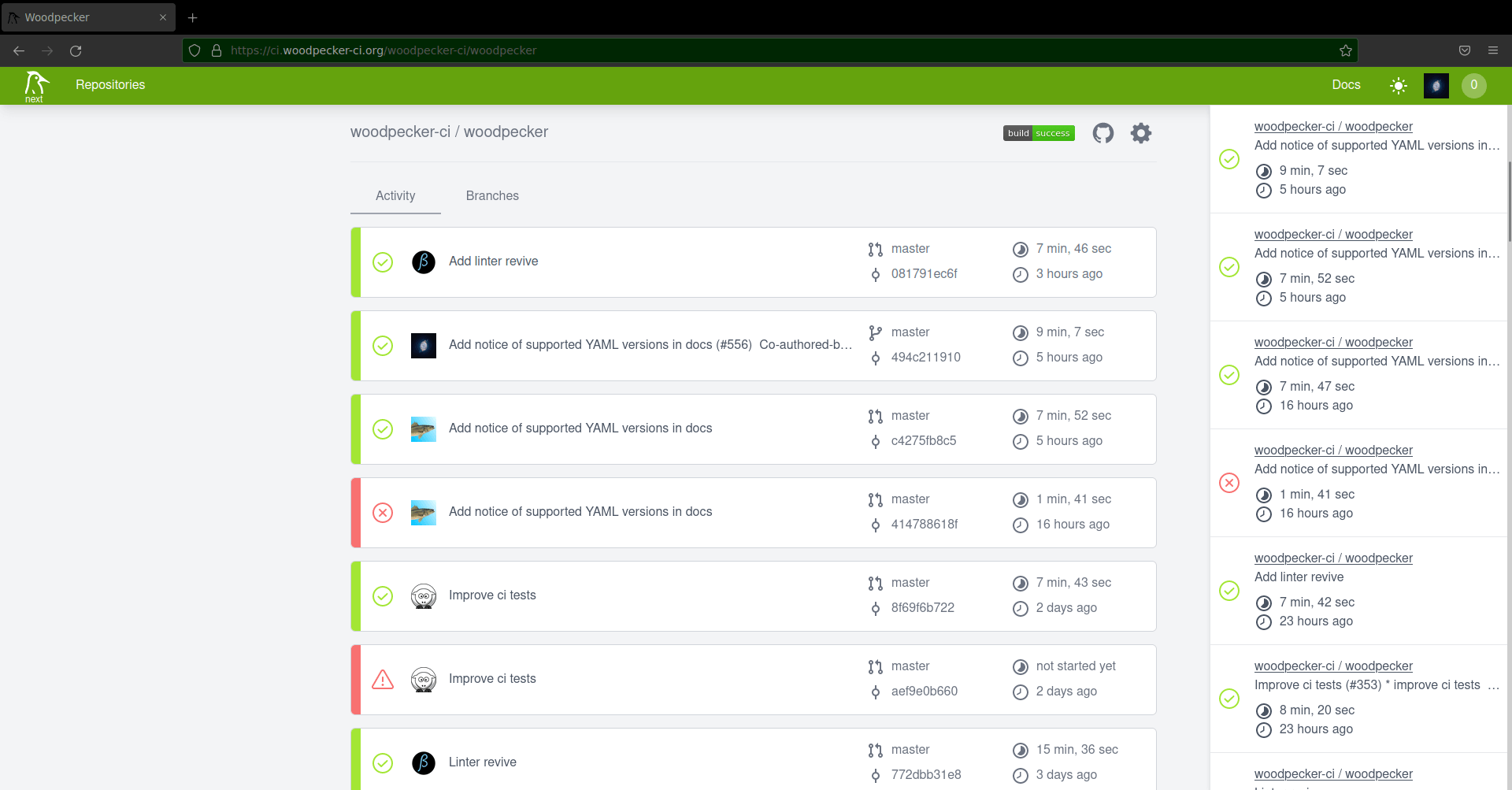mirror of
https://github.com/woodpecker-ci/woodpecker.git
synced 2025-02-19 20:56:21 +00:00
2 KiB
2 KiB
Welcome to Woodpecker
Woodpecker is a simple CI engine with great extensibility. It runs your pipelines inside Docker containers, so if you are already using them in your daily workflow, you'll love Woodpecker for sure.
.woodpecker.yml
- Place your pipeline in a file named
.woodpecker.ymlin your repository - Pipeline steps can be named as you like
- Run any command in the commands section
# .woodpecker.yml
pipeline:
build:
image: debian
commands:
- echo "This is the build step"
a-test-step:
image: debian
commands:
- echo "Testing.."
Build steps are containers
- Define any Docker image as context
- either use your own and install the needed tools in custom Docker images, or
- search Docker Hub for images that are already tailored for your needs)
- List the commands that should be executed in your container, in order to build or test your application
pipeline:
build:
- image: debian
+ image: mycompany/image-with-awscli
commands:
- aws help
File changes are incremental
- Woodpecker clones the source code in the beginning pipeline
- Changes to files are persisted through steps as the same volume is mounted to all steps
# .woodpecker.yml
pipeline:
build:
image: debian
commands:
- touch myfile
a-test-step:
image: debian
commands:
- cat myfile
Plugins are straightforward
- If you copy the same shell script from project to project
- Pack it into a plugin instead
- And make the yaml declarative
- Plugins are Docker images with your script as an entrypoint
# Dockerfile
FROM laszlocloud/kubectl
COPY deploy /usr/local/deploy
ENTRYPOINT ["/usr/local/deploy"]
# deploy
kubectl apply -f $PLUGIN_TEMPLATE
# .woodpecker.yml
pipeline:
deploy-to-k8s:
image: laszlocloud/my-k8s-plugin
template: config/k8s/service.yml
See plugin docs.
